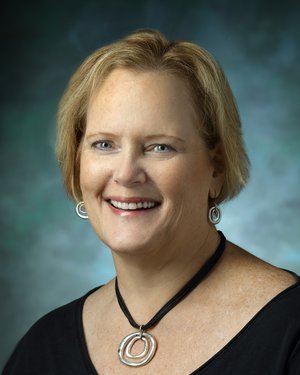Kathryn Ruble, Ph.D., M.S.

- Director, Life Clinic and Leukemia Survivorship Program
- Associate Professor of Oncology
Expertise: Cancer Survivorship, Pediatric Cancer
Childhood Leukemia is the most common type of childhood cancer. More than 80 percent of children diagnosed with cancer will have AML or Acute Myelogenous Leukemia. The good news is nearly all will survive their disease. For those who had childhood leukemia or other types of pediatric cancer, the Life Clinic at Johns Hopkins is a medical resource unlike any other.
Our experts specialize in recognizing and responding to the unique health needs of childhood cancer survivors. We chart patients' new course to living healthy again by developing a long-term plan for a strong body and sound mind. The program's research initiatives aim to better understand the reasons certain patients are predisposed to the long-term effects of cancer therapy, as well as how adverse late effects impact the lives of survivors.

Expertise: Cancer Survivorship, Pediatric Cancer
Surviving childhood cancer is like completing an obstacle course with numerous hurdles along the way. There’s much to celebrate, but life doesn't always immediately return to normal. In fact,
At Johns Hopkins, we’re committed to helping each and every cancer survivor thrive post treatment. So, whether you’ve just finished your last round of chemotherapy or you’ve been cancer-free for years, your long-term health care needs as a survivor are different from those of a “regular” patient. You may have had aggressive treatments to survive your disease—treatments that might cause health complications down the road. You may be looking for help in getting back to your school, your job, and your relationships as you move from cancer patient to cancer survivor. The Michael J. Garil Leukemia Survivors Program can help.